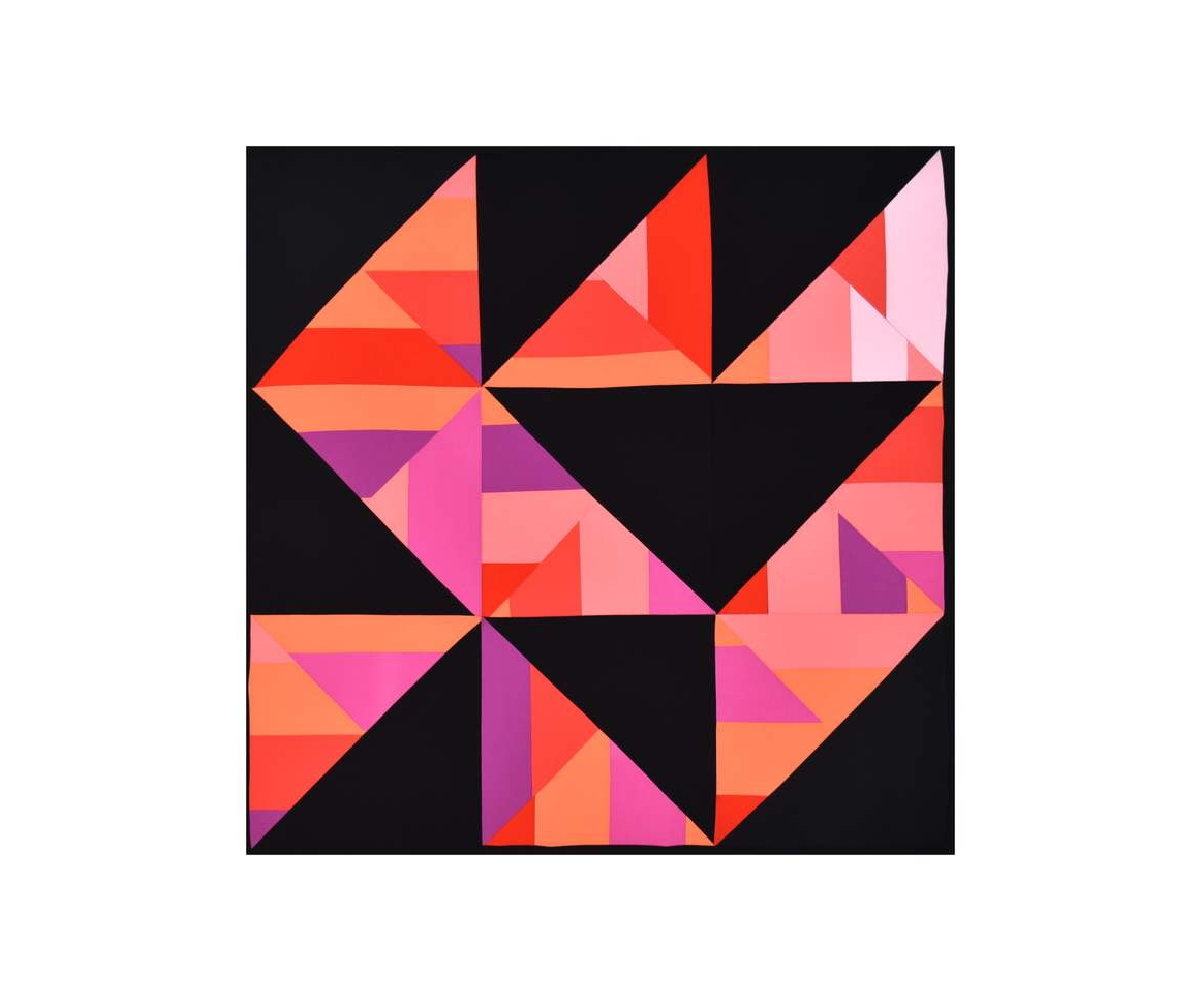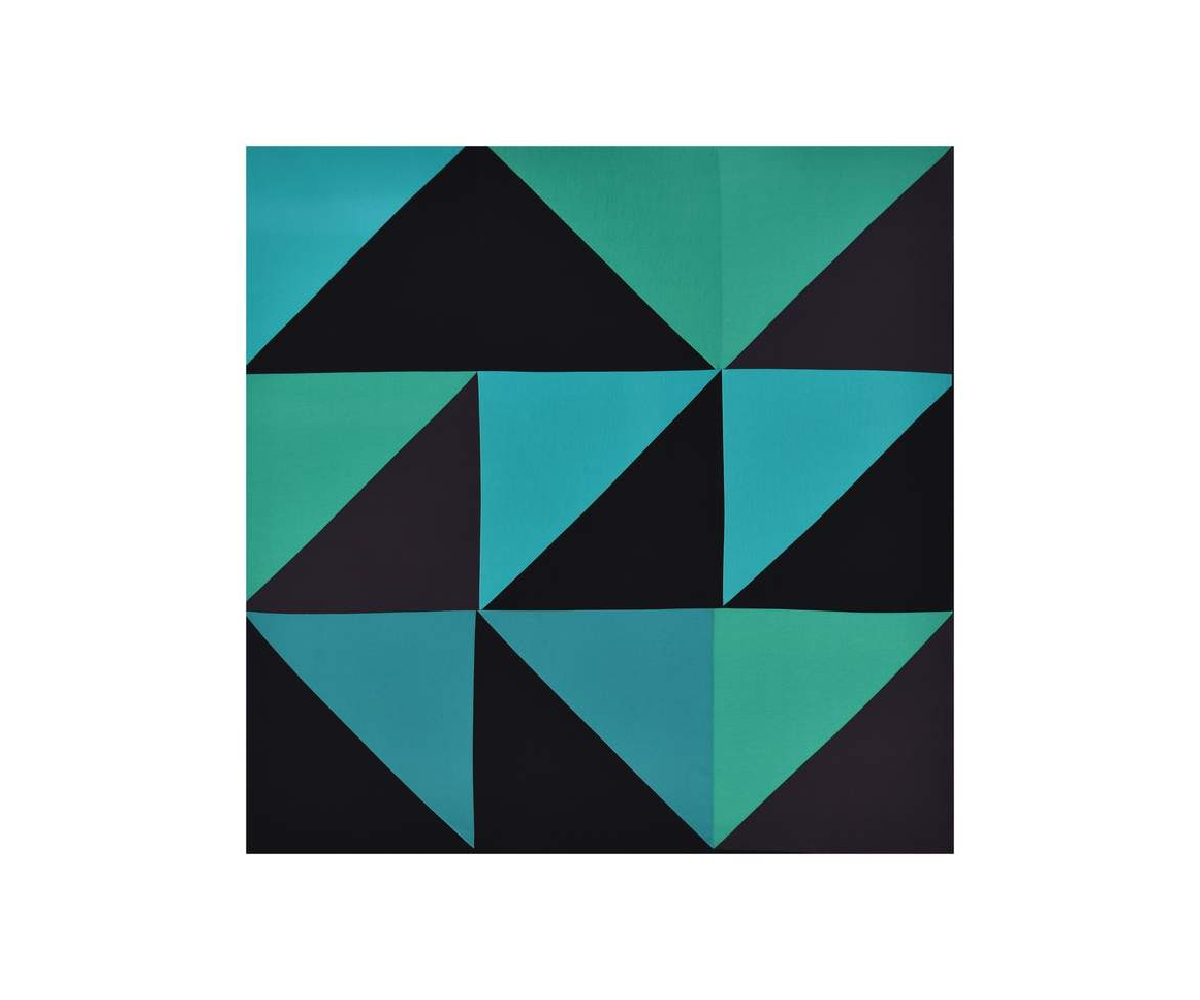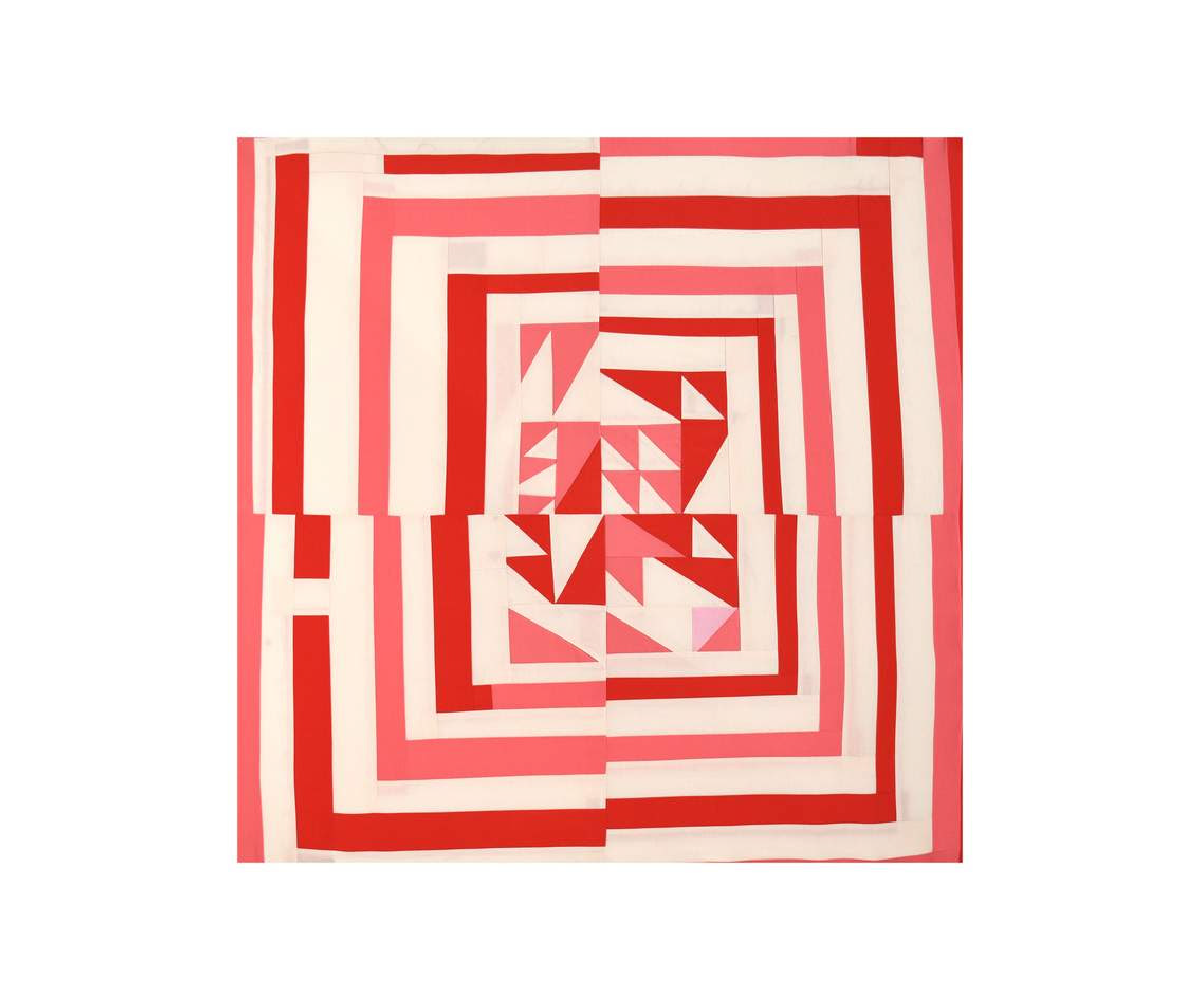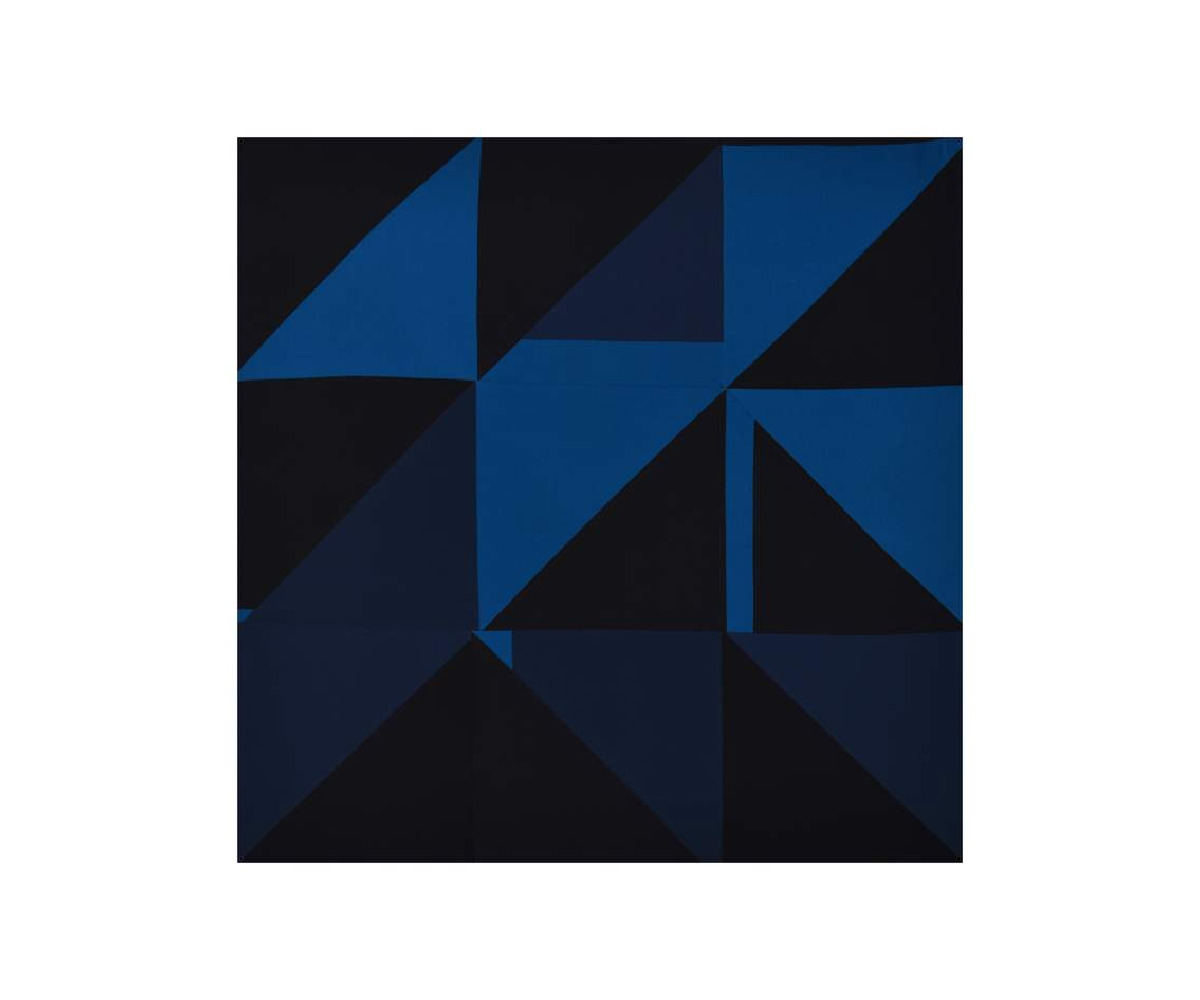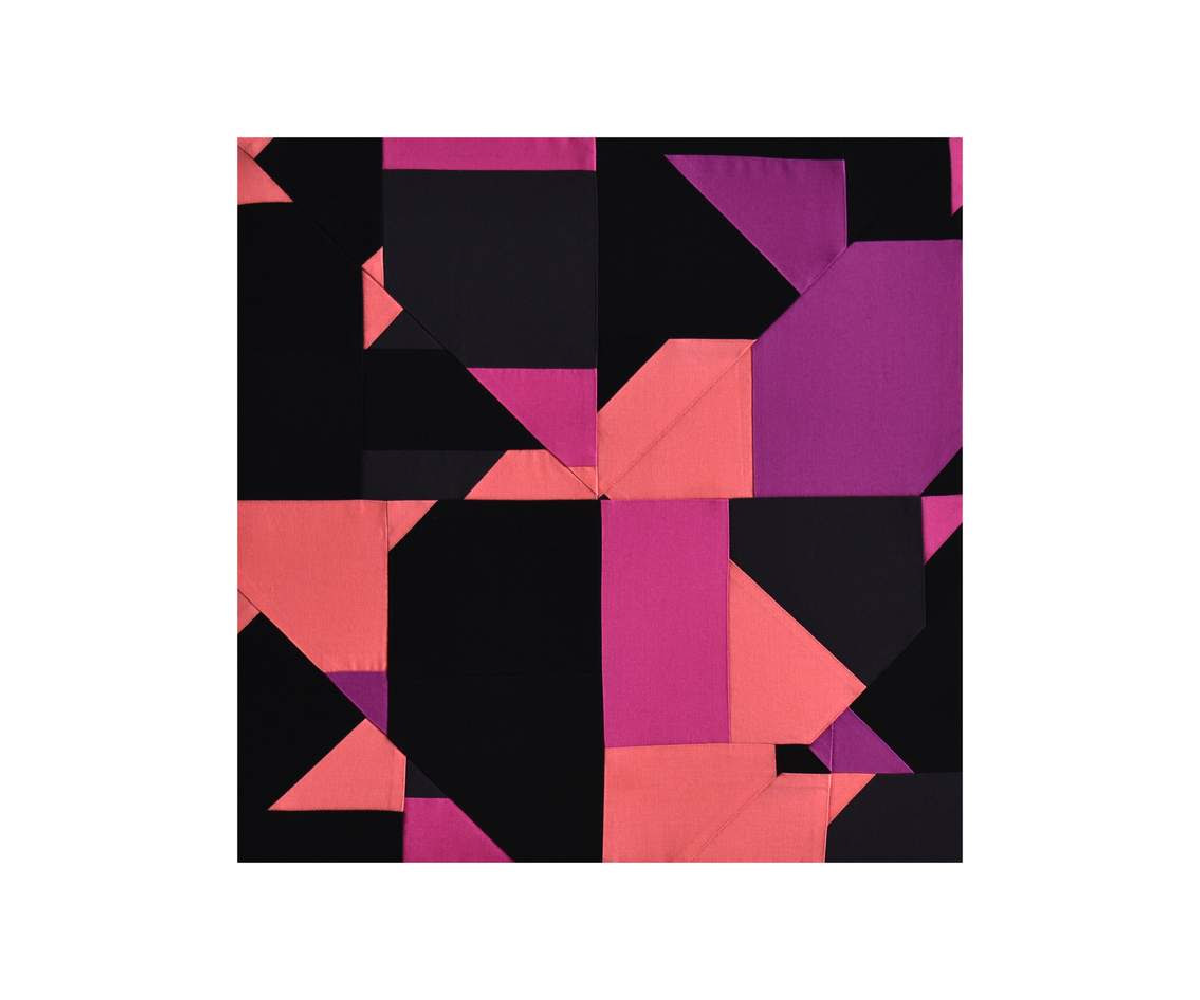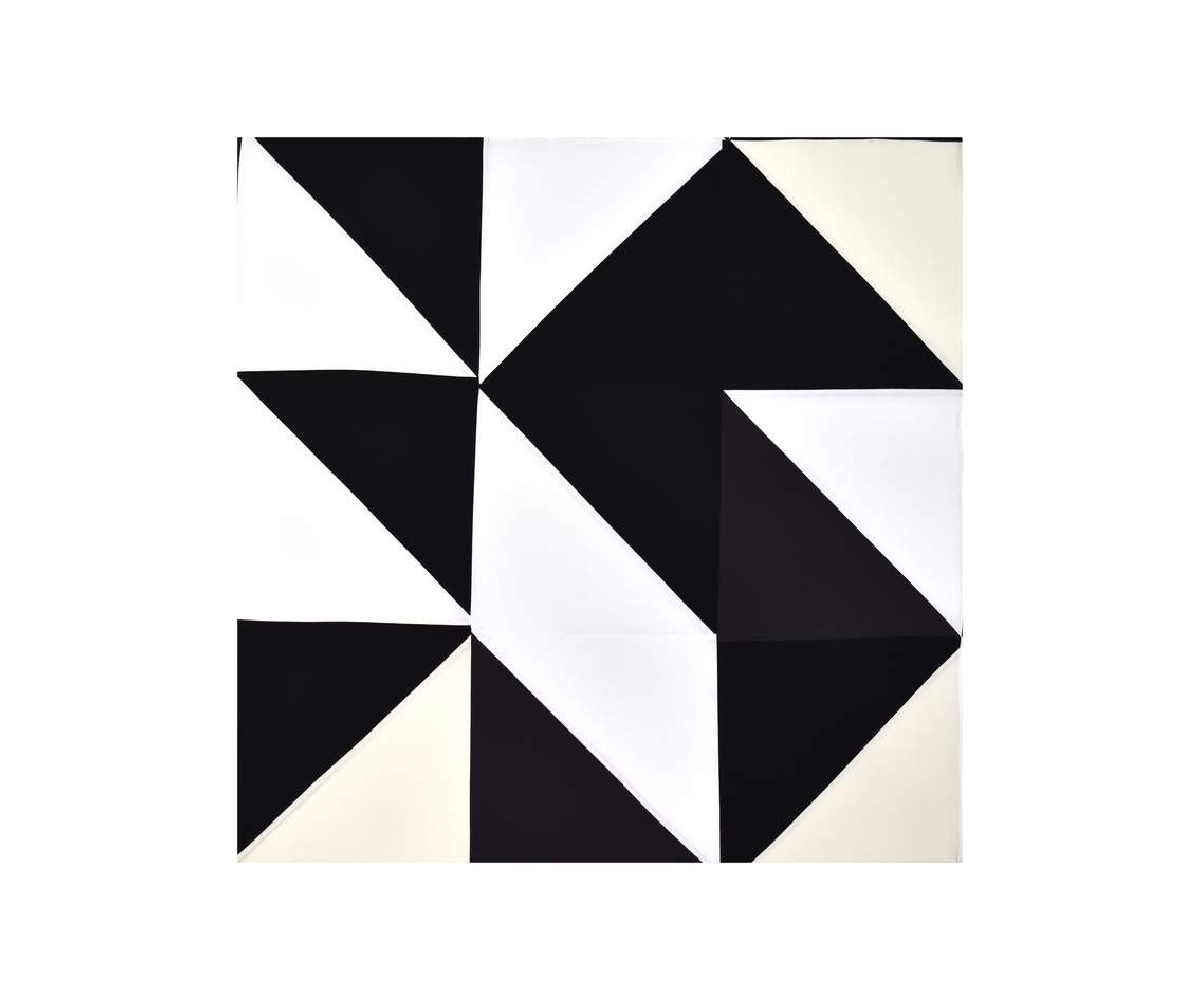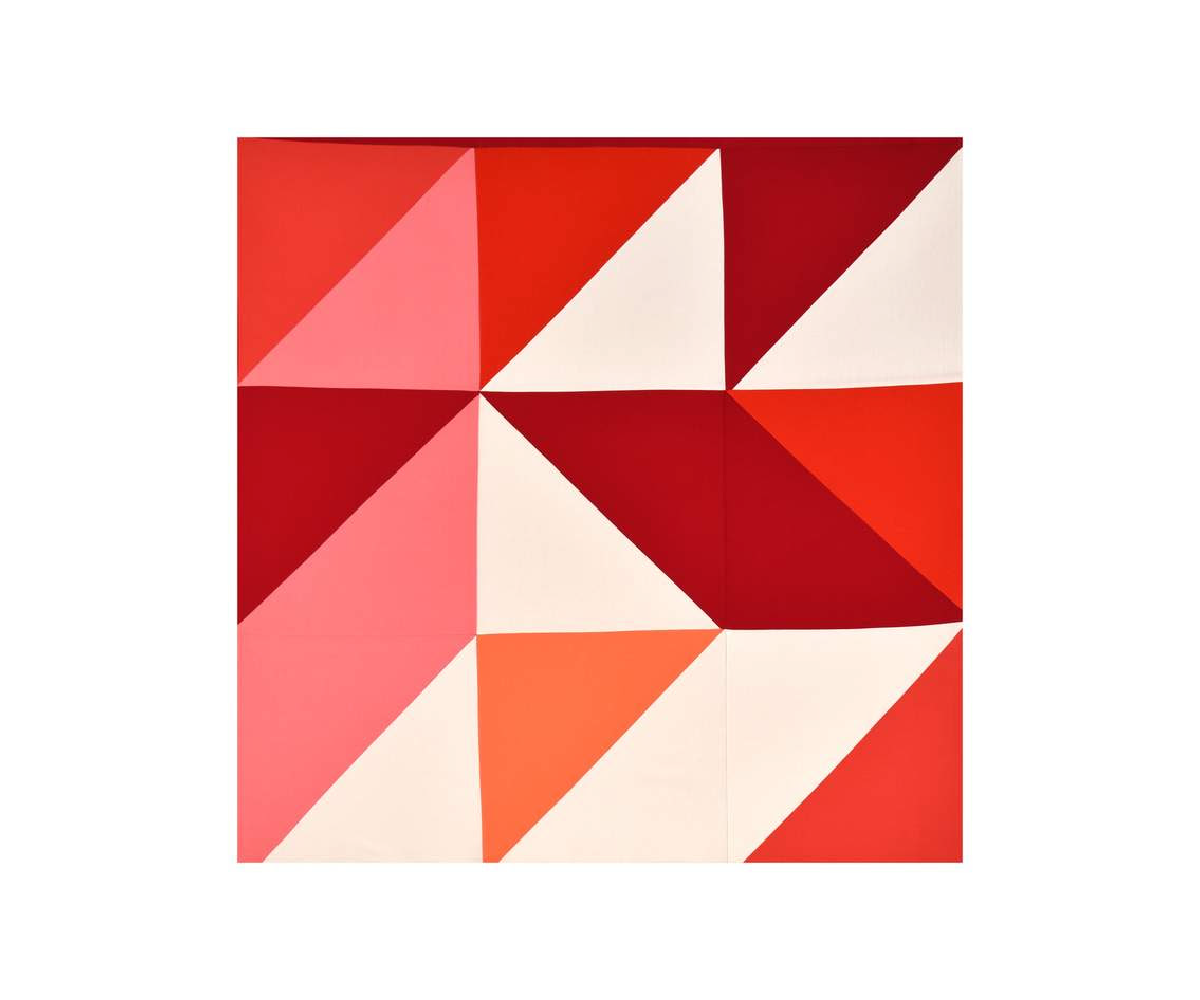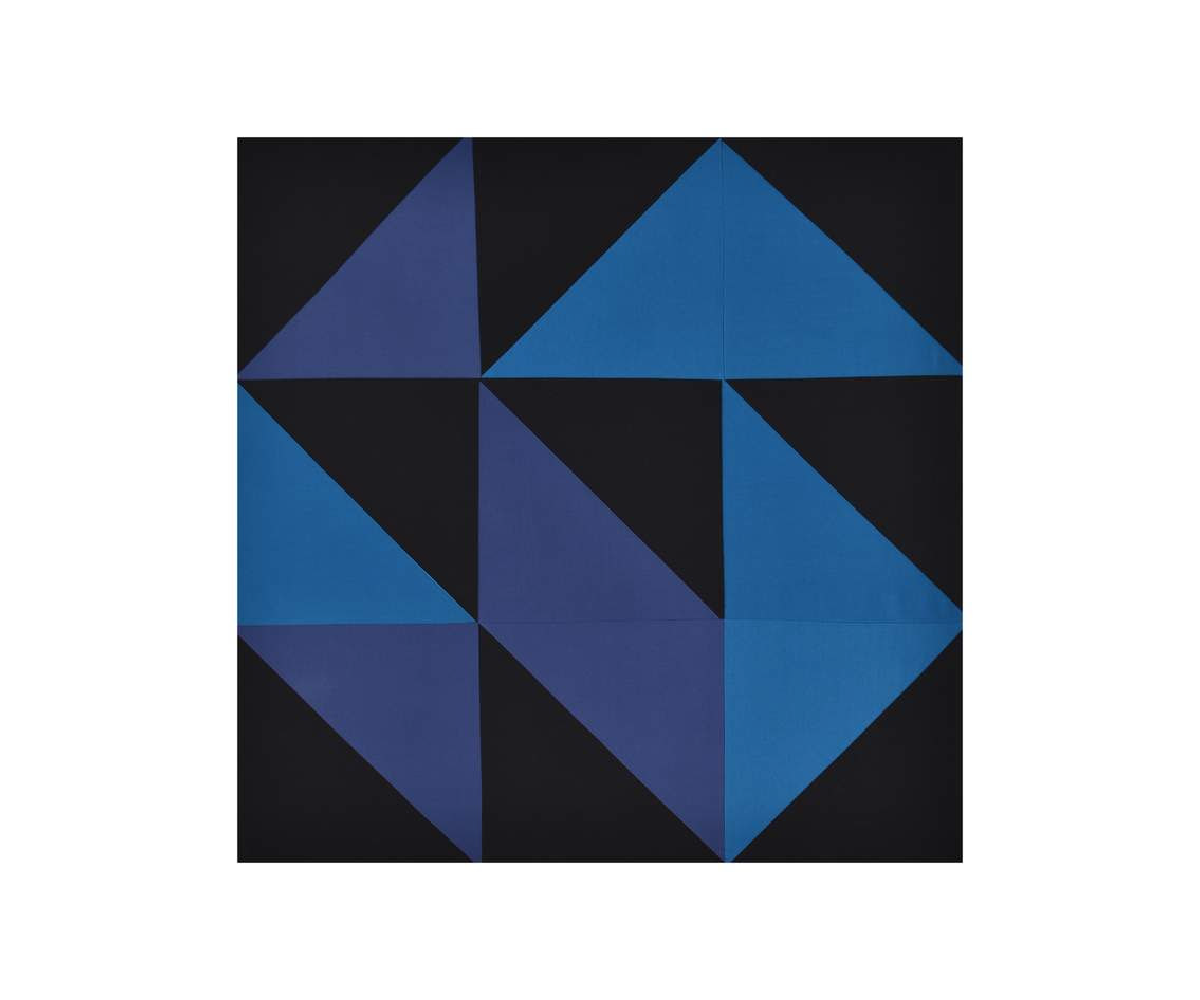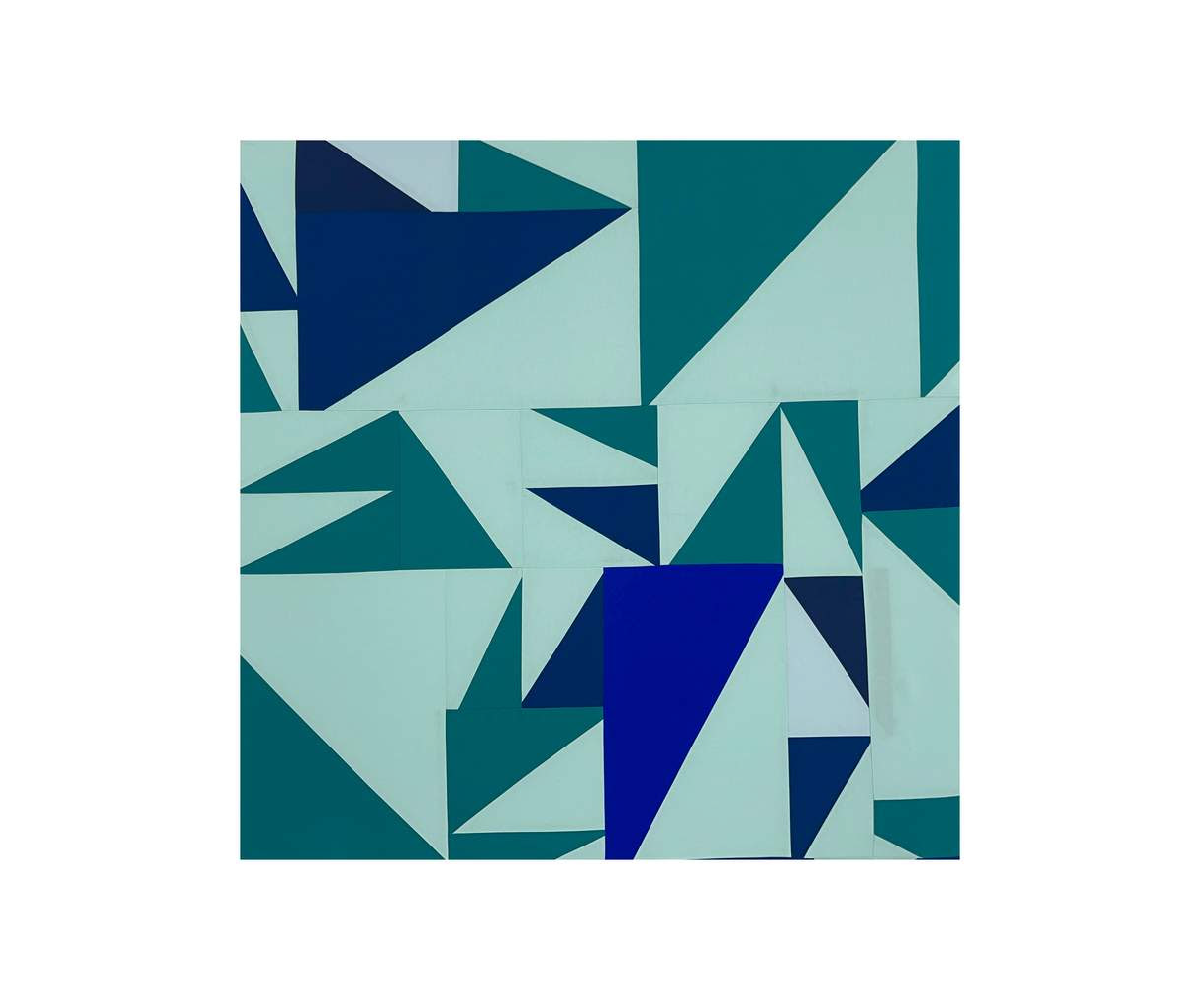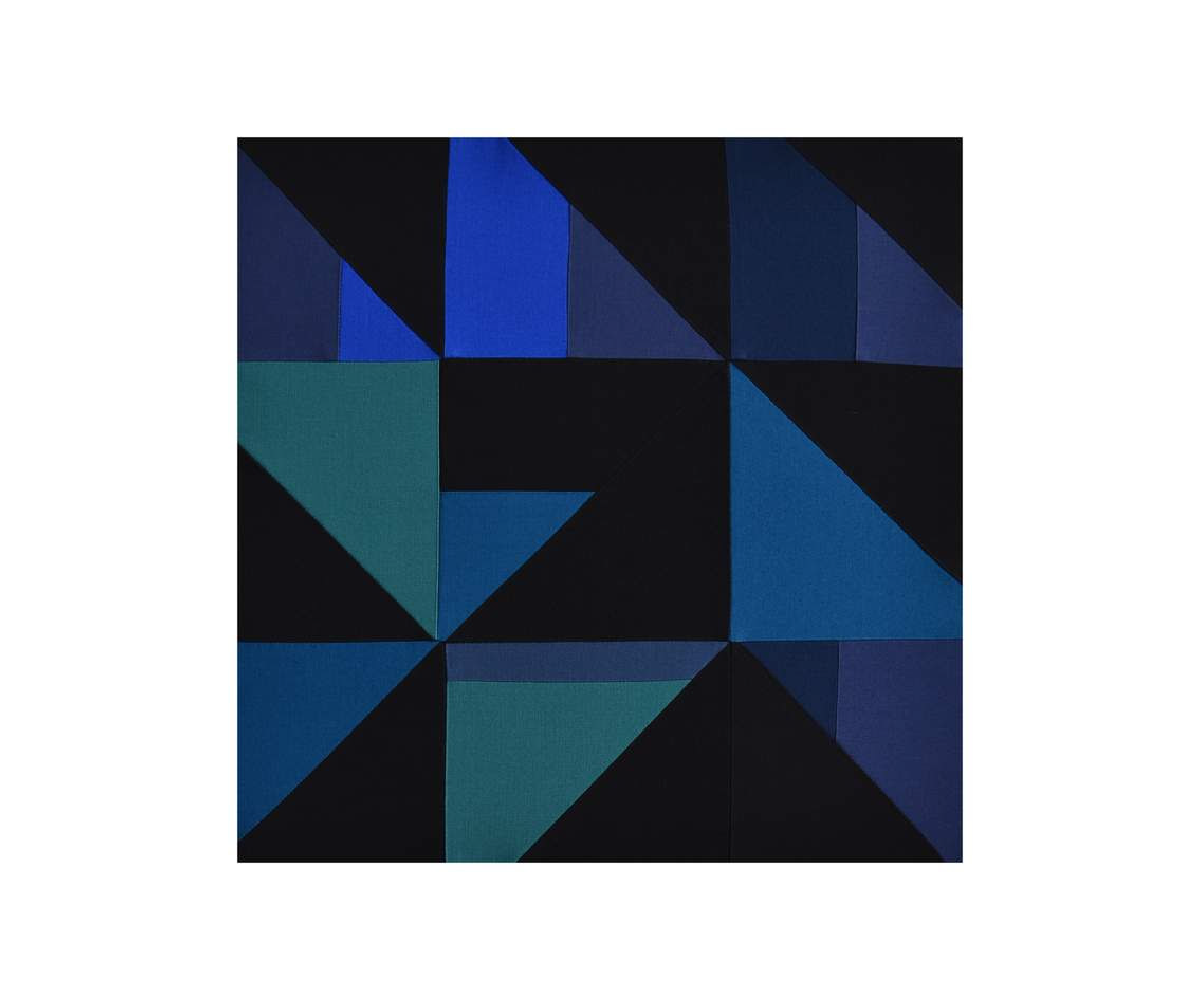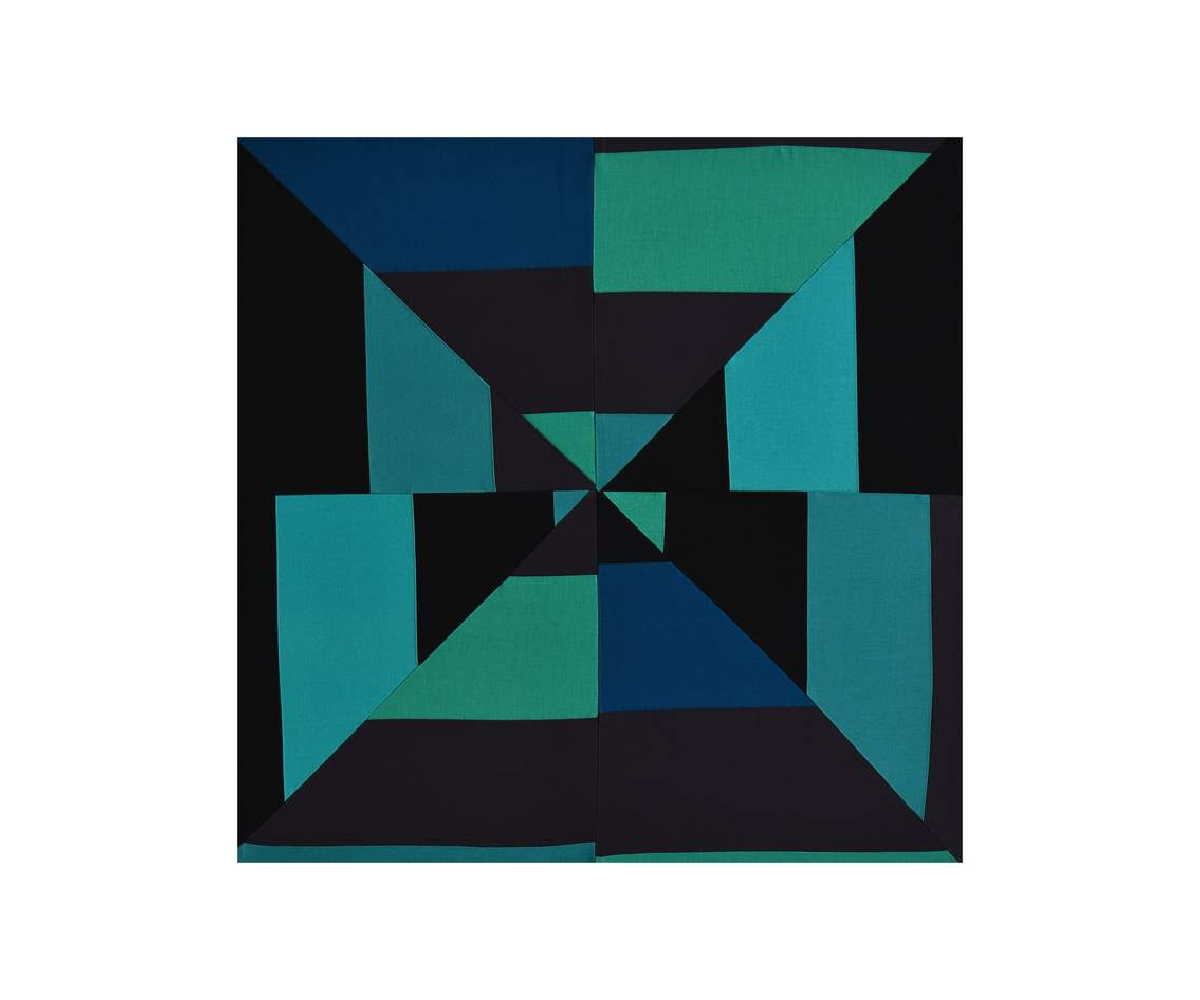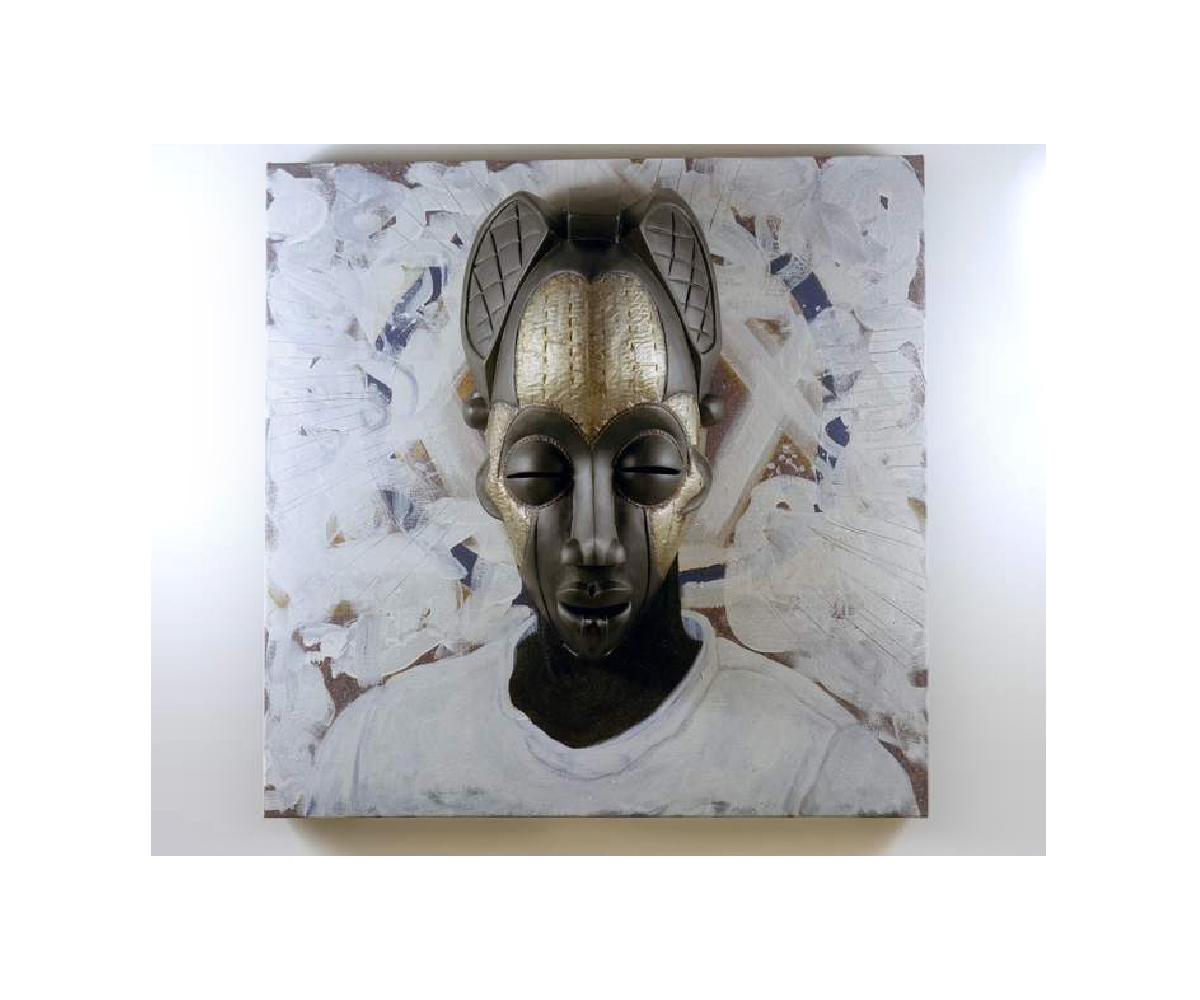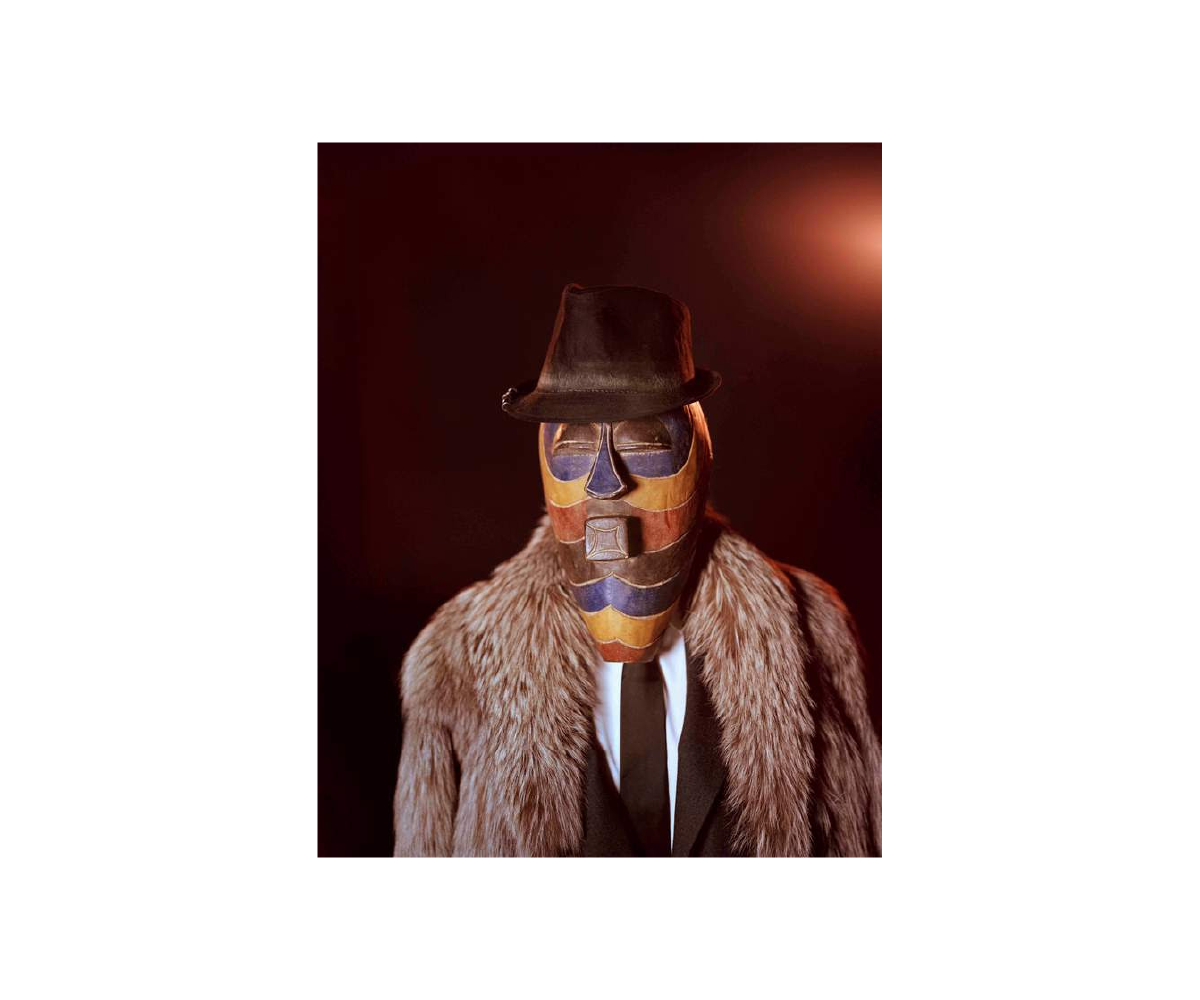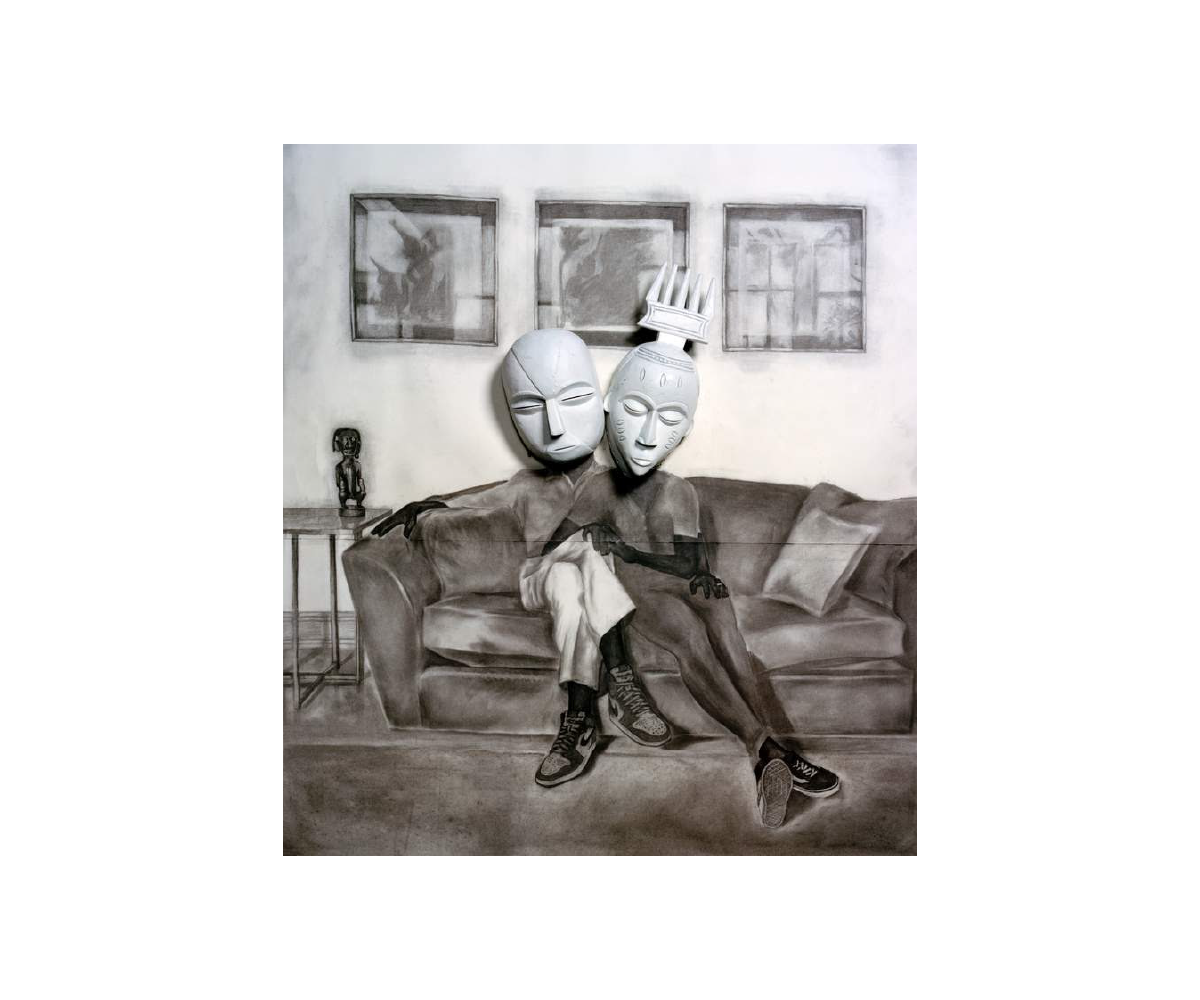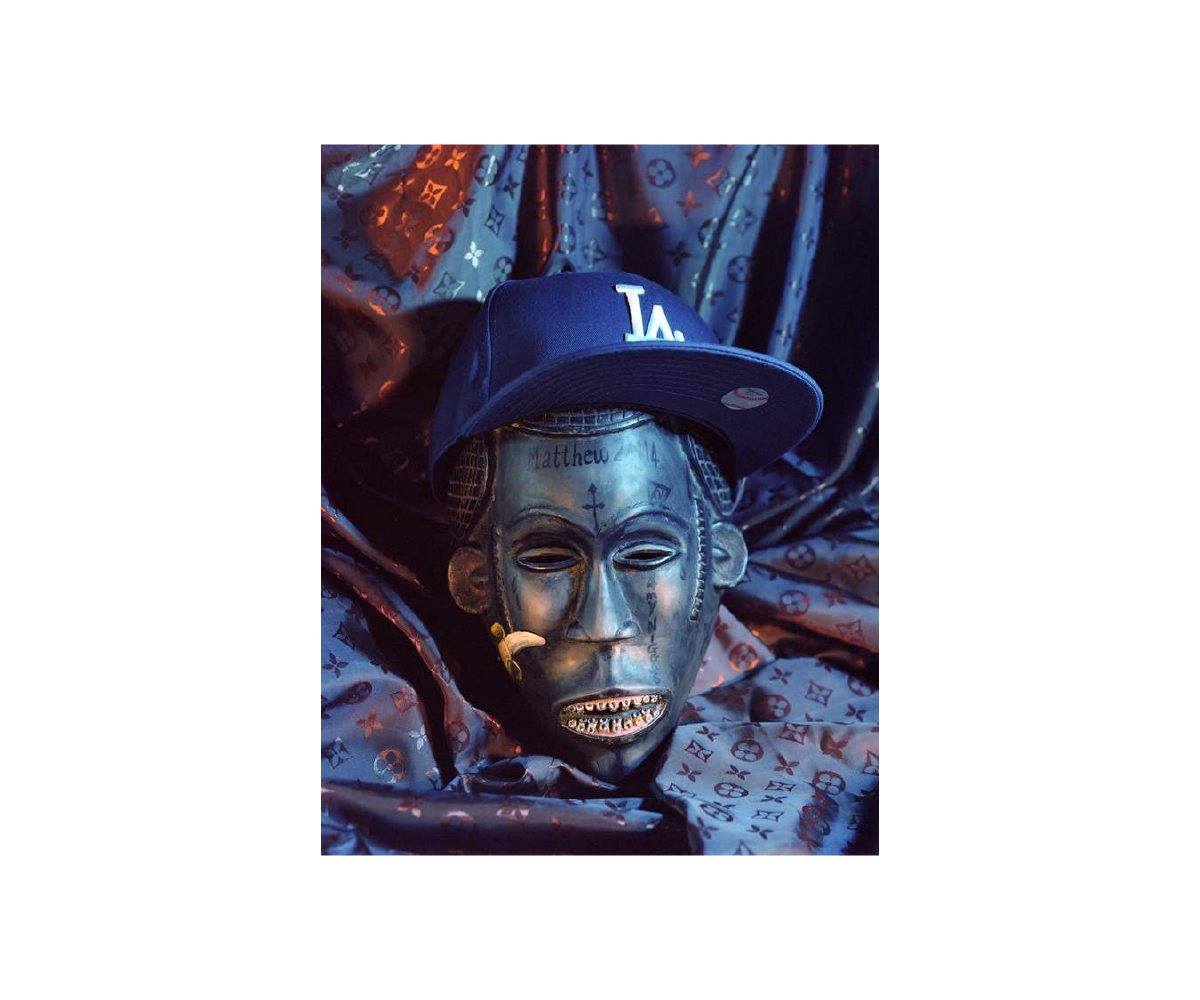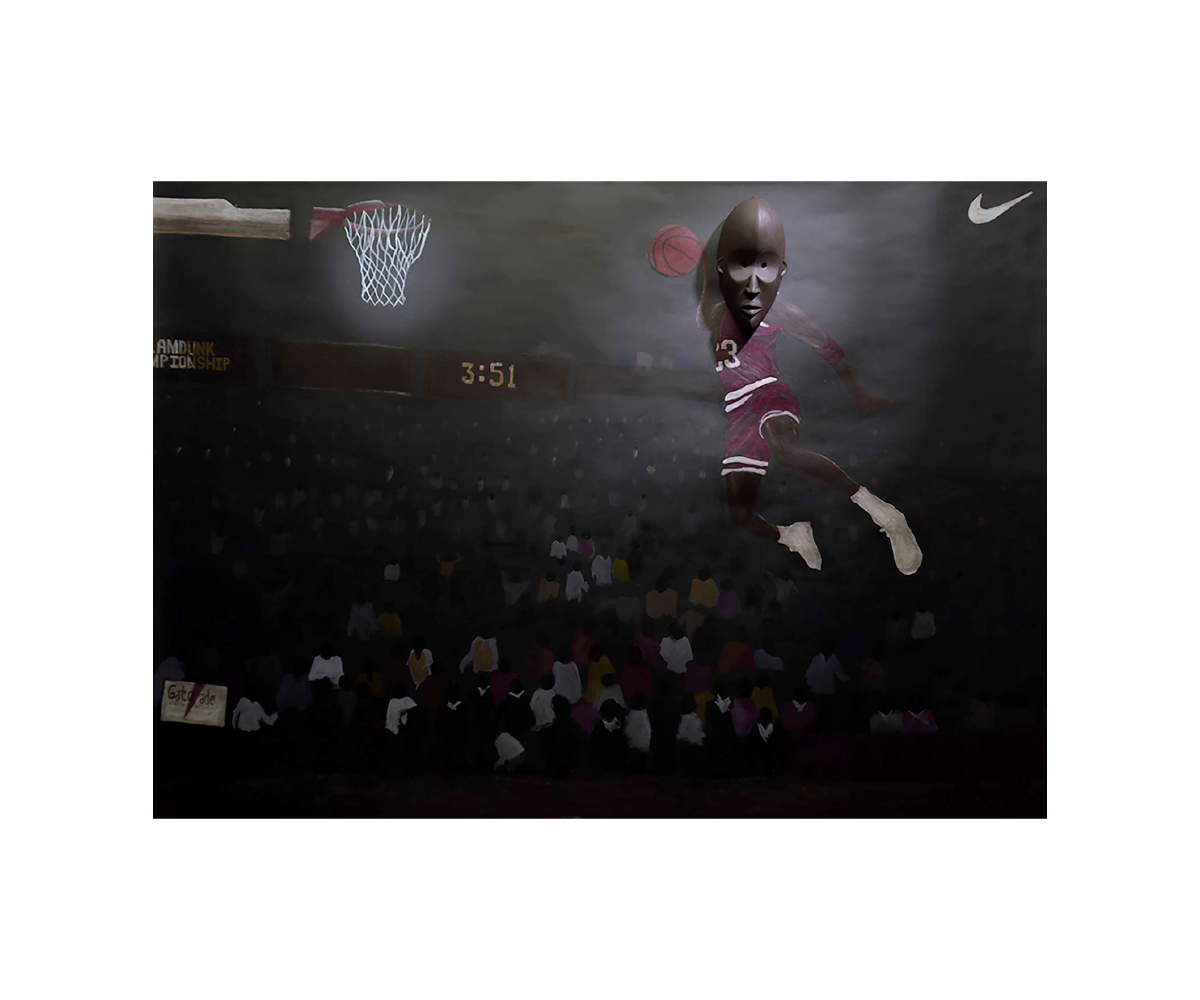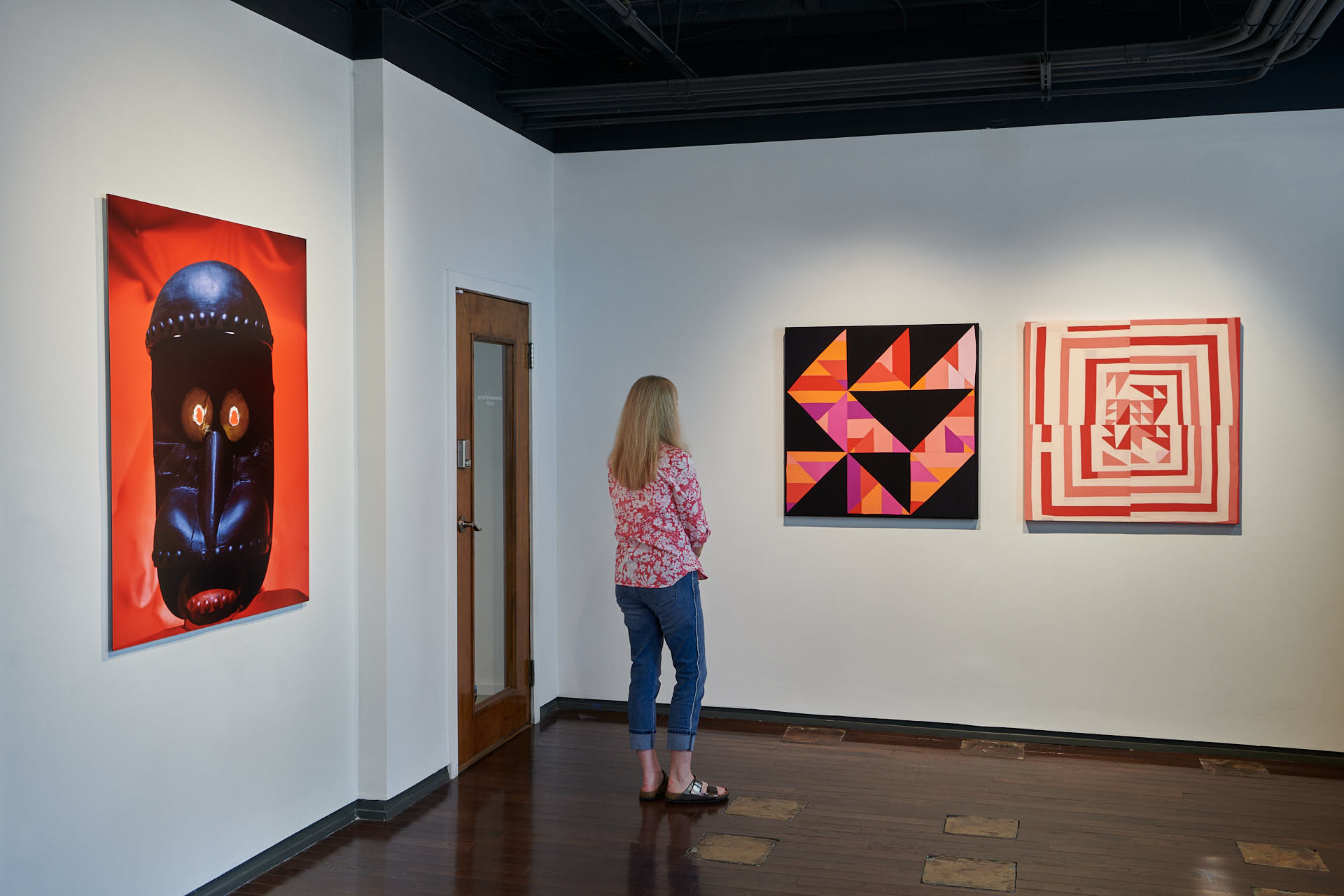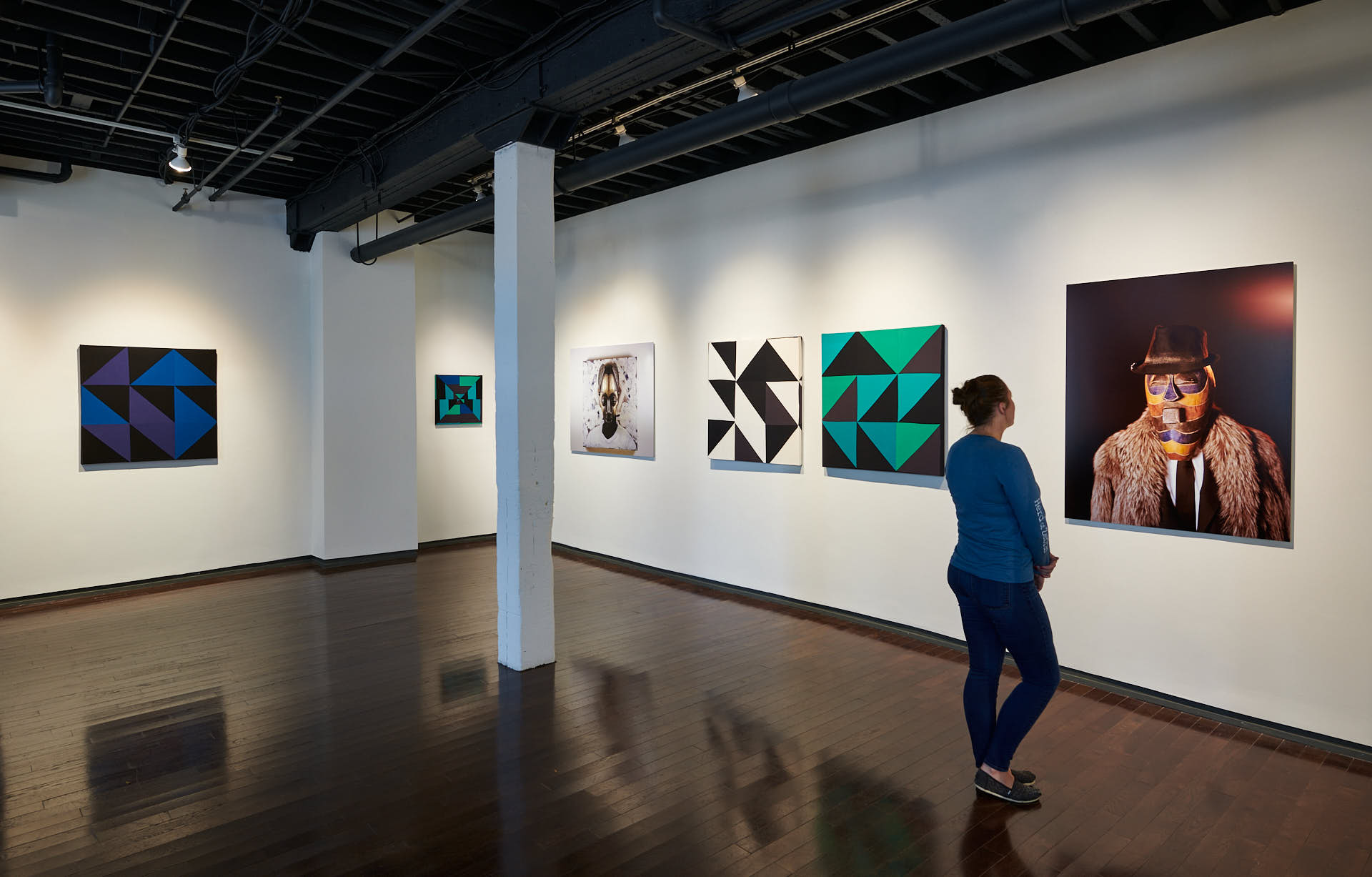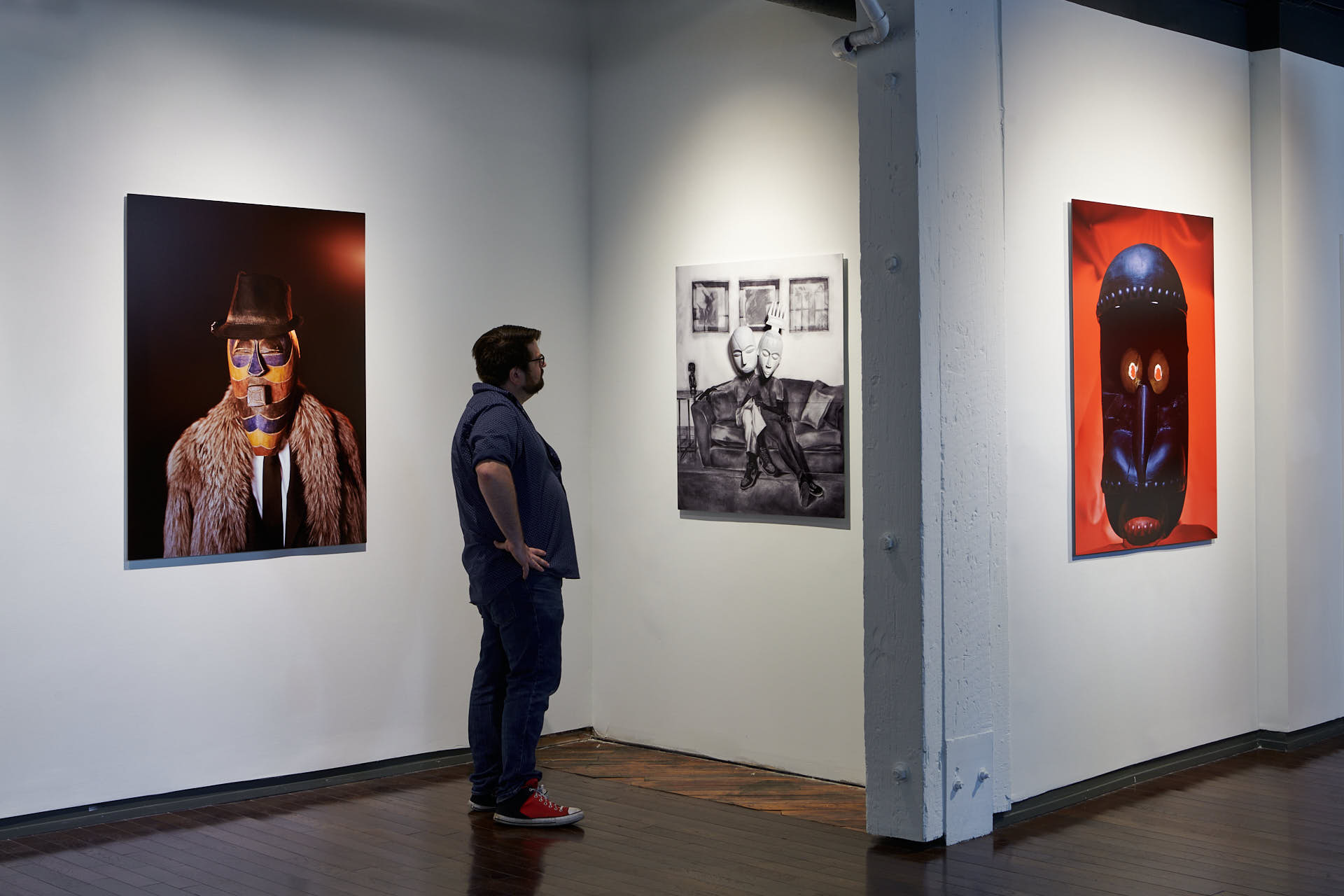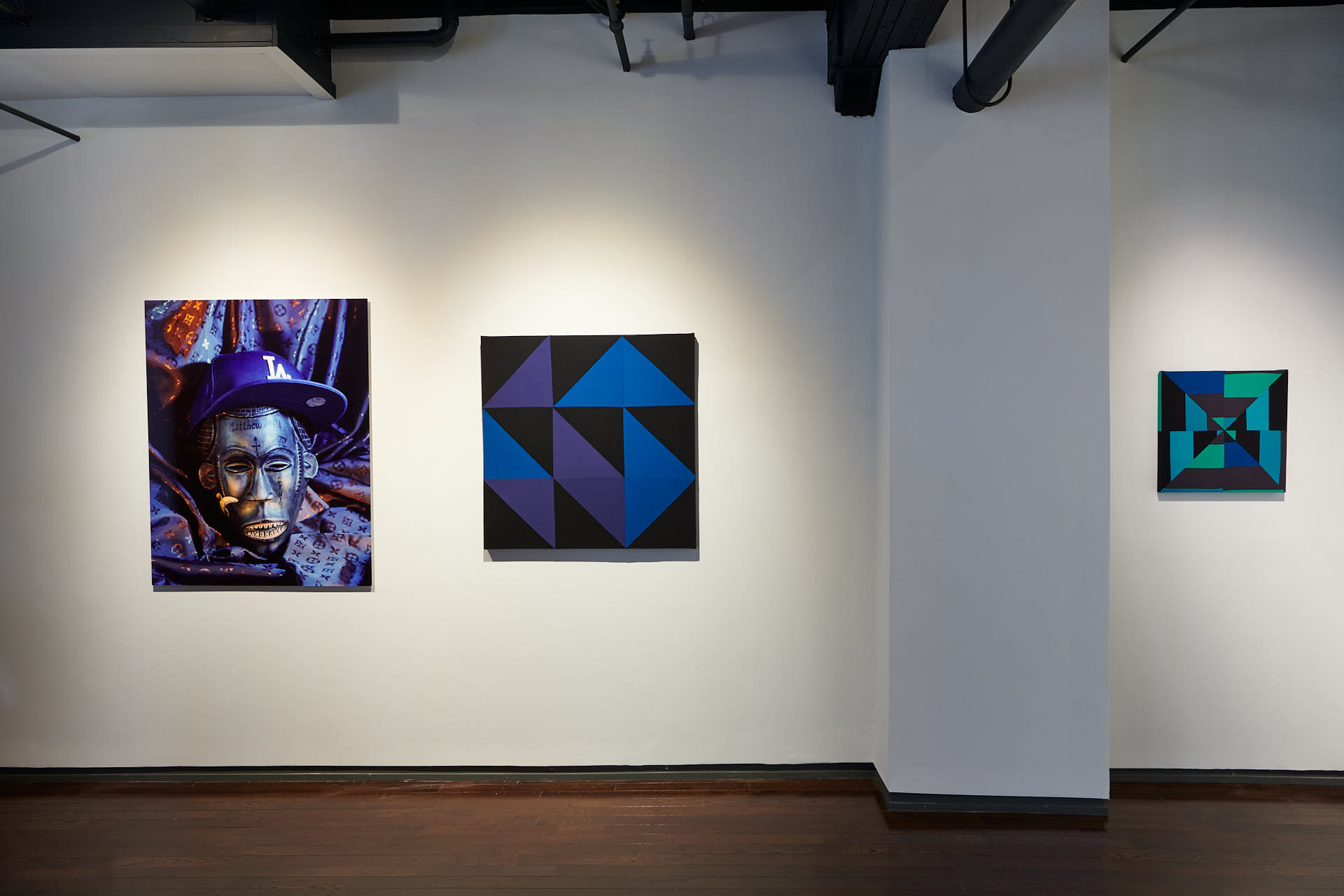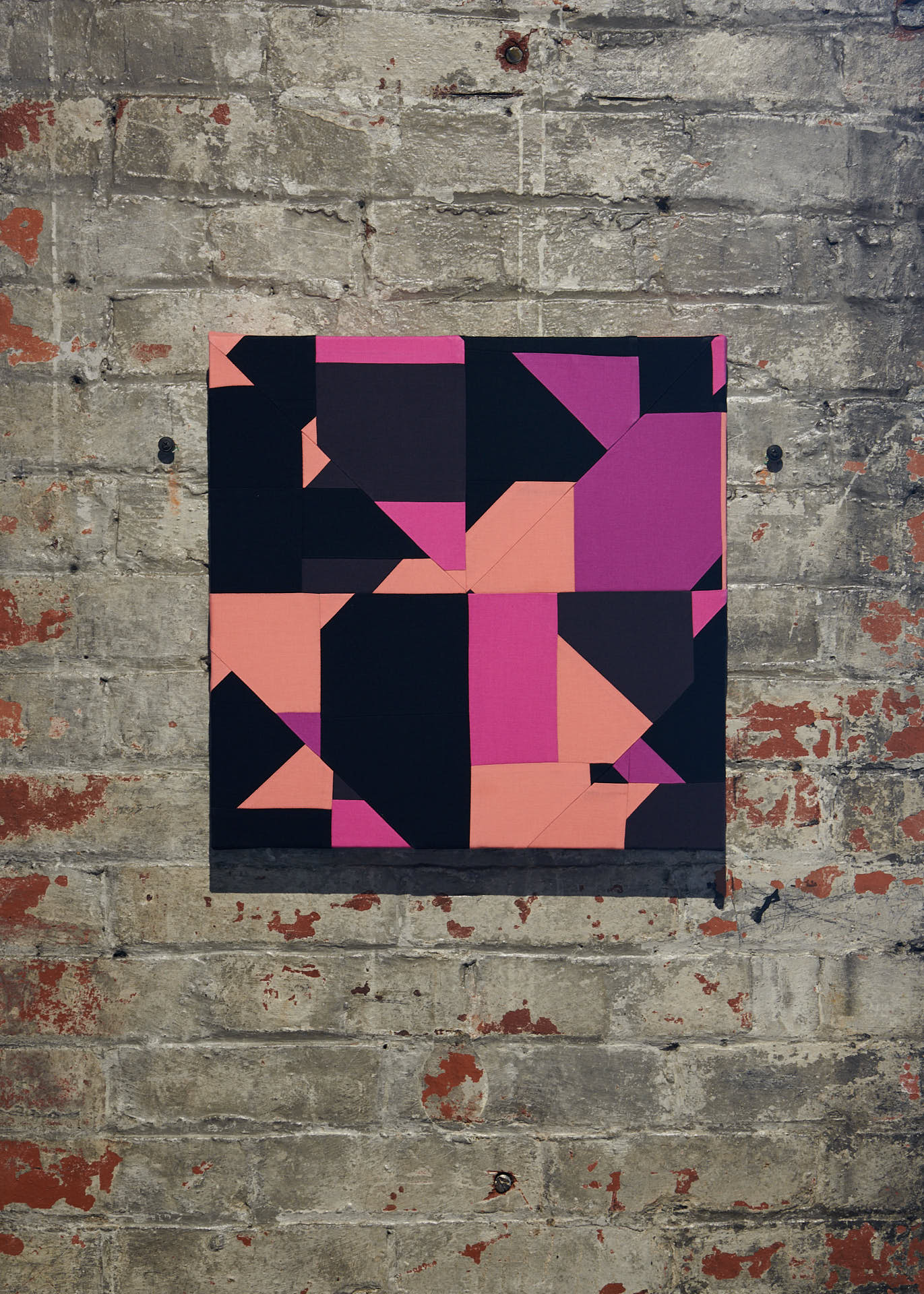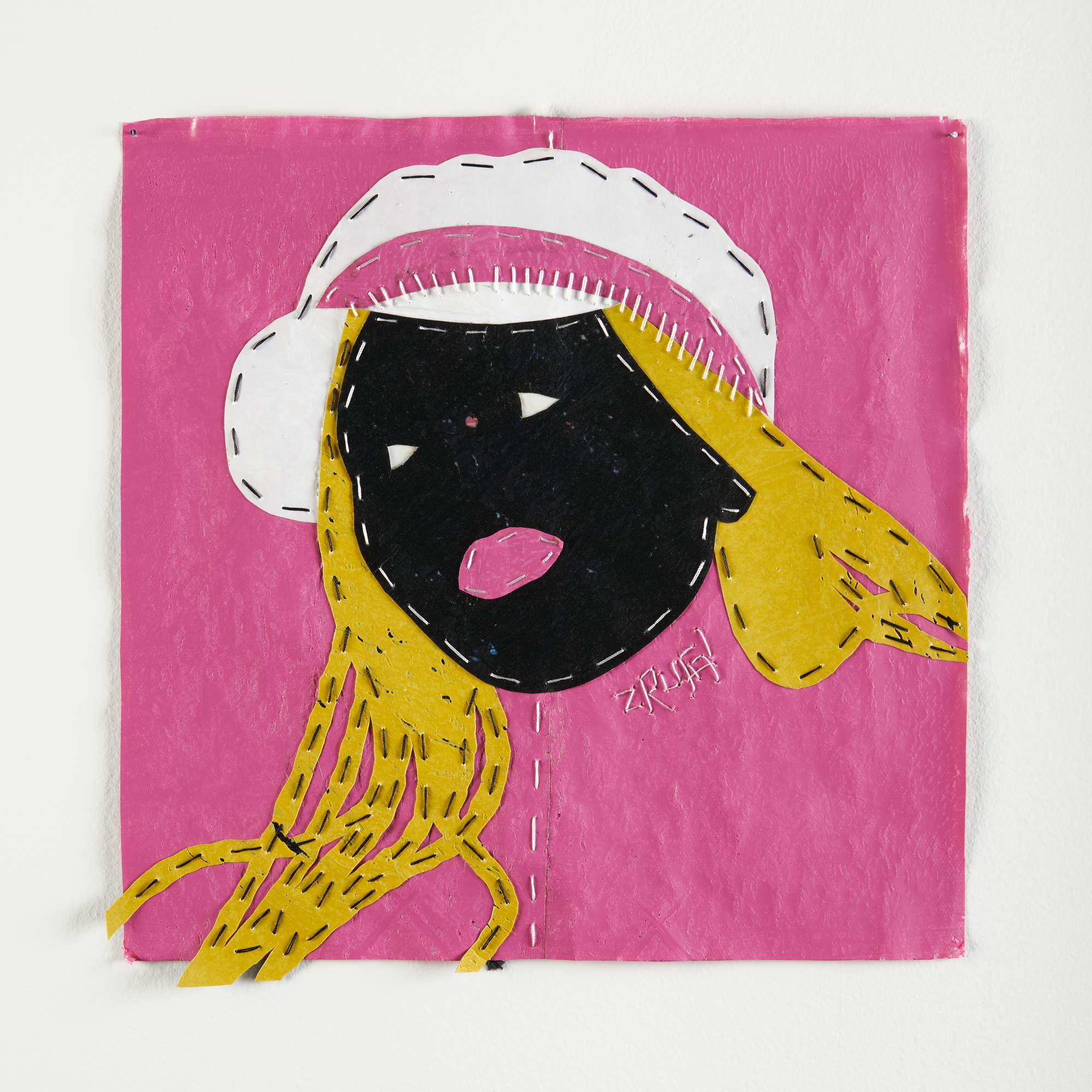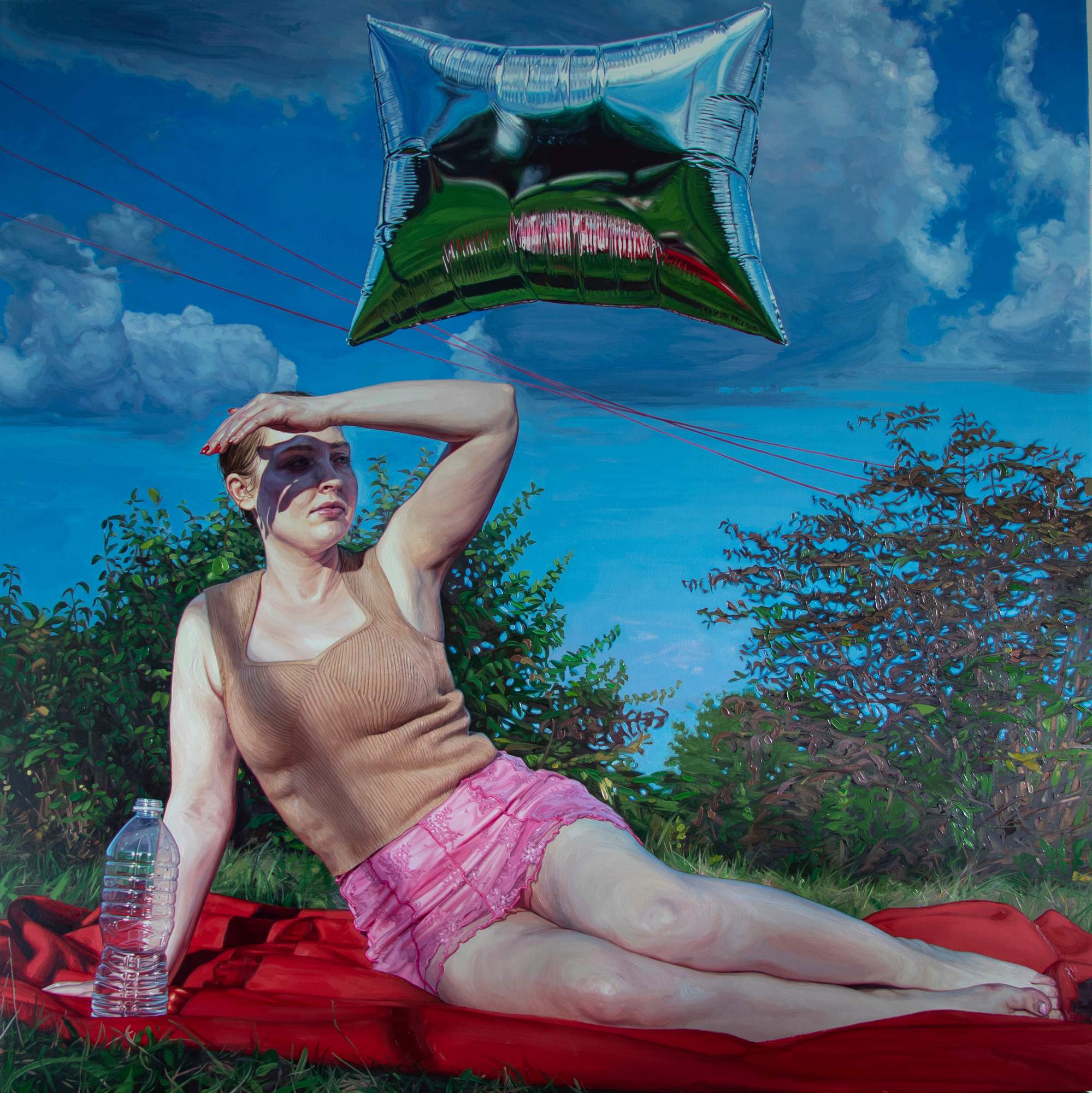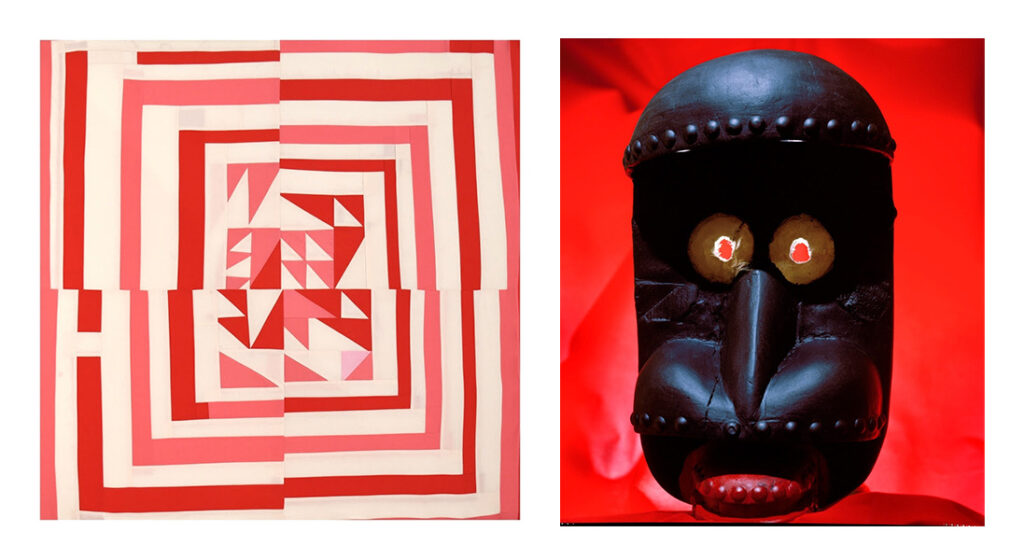
August 10 – September 15, 2023
Heather Jones and Jared Thorne
Contemporary Art Matters is pleased to present a two person exhibition: Heather Jones and Jared Thorne. Heather Jones’ textile abstractions draw upon the artist’s ancestry in her use of traditional quilting techniques to explore themes of matrilineal connections, introspection, and ancestry. Jared Thorne’s photographs recontextualize traditional African masks to raise questions of representation for Black men in American culture. His photographs layer sculpture, painting, and photography into one image. The exhibition opens August 10th, and will be on view through September 15th. An artists’ reception will take place August 17th, 5-7pm.
In the exhibition
Installation views
Contemporary Art Matters is pleased to present a two person exhibition: Heather Jones and Jared Thorne. Heather Jones’ textile abstractions draw upon the artist’s ancestry in her use of traditional quilting techniques to explore themes of matrilineal connections, introspection, and ancestry. Jared Thorne’s photographs recontextualize traditional African masks to raise questions of representation for Black men in American culture. His photographs layer sculpture, painting, and photography into one image. The exhibition opens August 10th, and will be on view through September 15th. An artists’ reception will take place August 17th, 5-7pm.
Heather Jones is a Dayton, Ohio based artist working with fabric to stitch together modern variations of traditional quilts. Jones looks back at her Euro-Appalachian ancestry and specifically to the women in her family for inspiration in her work; “I also owe immense gratitude to my grandmothers, Shirley Mae and Mary, and all of my other grandmothers and great aunts that paved the way for me. My life and work is a celebration of them and I will always try to honor the matrilineal connection to my ancestors.”
Jones’ latest series of sewn abstractions come from her time at the Silver Arts Project Residency in New York City, where she created works inspired by the urban landscape and simultaneously looked back to the women in her family. Contrasting bright pops of color with panels of black, Jones’ latest works show a moody, contemplative side to the artist’s repertoire. Her display of the artist’s hand comes through in her work with the intentional misalignment of corners and edges. By irregularly stretching certain panels and seams, Jones creates a sense of energy and movement that could not be achieved with perfect corners and balanced seams. In Like It Was Written In My Soul, the pink and red lines seem to vibrate into an ever-shifting shape. Jones’ breakage of line creates an image of an impulsive, exploding form, while the mellow pinky-white fabric pulls the piece back together – a perfect balance of calm and chaos. Modularity has also become an ongoing theme in Jones’ work. Each sewn piece is intended to hang with others, combining together into a larger, more dynamic union.
Jared Thorne challenges modern perceptions of Black men in American culture. In his ongoing series, Black Palimpsest, Thorne enters into conversation with the palimpsest, an object overlaid and effaced with new meaning. African masks serve as the palimpsest in this set of work, complete with fur jackets, baseball caps, and fabric backdrops. In Thorne’s photographs, these masks are layered on top of paintings and then photographed once finished. The different layers to his work incorporate different media to further obscure the original object, the mask.
In Still Lost, Thorne responds to Kerry James Marshall’s painting, Lost Boys, a meditation on the loss of Black lives to police shootings in America. Thorne recreates Marshall’s signature use of black paint for the skin of his subjects and white paint to obscure the background. In Kind of Blue, Thorne investigates the materialistic obsession that dominates American society,
specifically Hip-Hop culture. With the baseball cap and fabric backdrop, Thorne is interrogating “the veneer of culture and what one signifies as an attempt to assimilate or stand out.”
All the works from this series explore subjectivity and interrogates Black masculinity in America. Thorne works in Columbus and is an Associate Professor in the Art Department at the Ohio State University.

